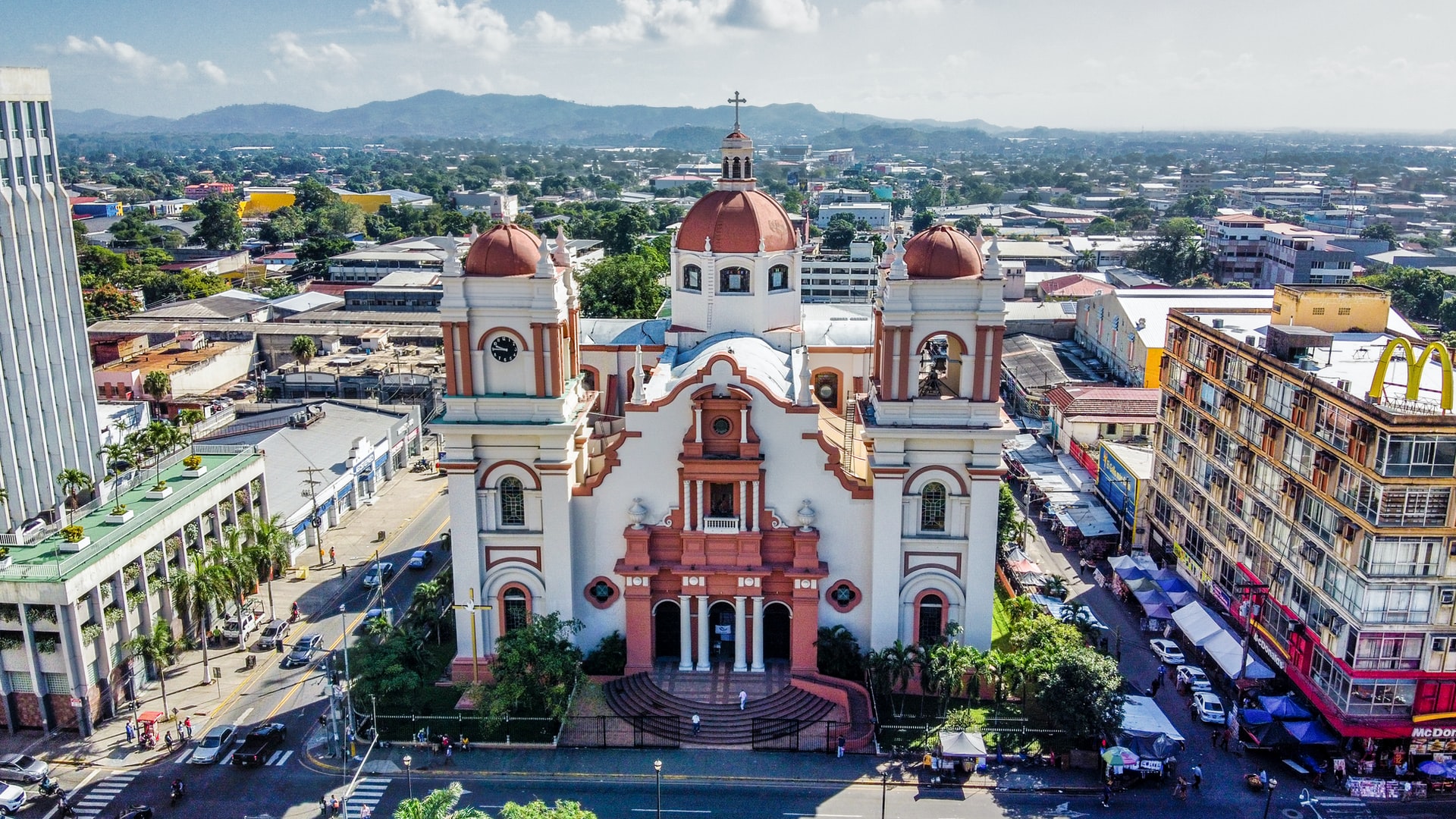
A pineapple ready for harvest near Santa Cruz de Yojoa in the Sula Valley of Honduras. Pineapples have become an important to Honduran exports, but smallholder farmers growing this and other crops are in constant risk due to climate change-related shocks.
While much of the attention surrounding COP26 has focused on moving forward on big proposals like climate finance, other agreements inked at Glasgow show promise for communities who often lack a voice during such high-level climate talks.
For example, this week the Government of Honduras and the International Fund for Agricultural Development (IFAD) signaled their commitment to promoting climate-smart agriculture through a joint agreement. The mutual commitment to search for additional funding will open doors to much-needed investment in an agricultural sector in Honduras, which has long been vulnerable to the shocks of climate change.
The agreement intends to unlock financing from the Green Climate Fund to bolster an already planned project named “Developing Resilience in Sula Valley,” which is funded by IFAD and currently in the design phase. The Sula Valley, home to cities such as San Pedro Sula (shown below), Choloma and Villanueva, has long been important to the economy of Honduras as it is a hub for both agriculture and industry. But it has also been vulnerable to flooding, notably after the crises that resulted a year ago after two hurricanes devastated the region.
Once fully funded and kicked off, the project will enable small-scale farmers in northwest Honduras to minimize their economic risk and losses in the face of disasters through resilient farming techniques and new technology.

Farmers across Honduras, particularly smallholder farmers, face increasingly intense risks each year due to natural disasters and climate change. In just the past three years, Honduras along with neighbors El Salvador, Guatemala and Nicaragua have been battered by climate-induced natural disasters. Prolonged droughts and heavy rain devastated crop yields and created rampant food insecurity in 2019. The next year, as the collection of Latin American countries known as the Dry Corridor was handling the adverse effects of COVID-19, hurricanes Eta and Iota once again upended the agriculture sector.
Without access to credit, insurance or technology to mitigate the impacts of such disasters, many Hondurans are becoming “climate migrants,” fleeing their homeland in search of a more stable environment. Using data from the U.S. Customs and Border Patrol, Brookings Institution reported that U.S. border apprehensions of Honduran families rose from 518 to 188,368 between 2012 and 2019.
The Sula Valley project aims to combat climate migration and transform Honduras’s food system through the use of climate-smart practices and technologies. Specifically, the project will invest in infrastructure like water harvesting, irrigation and rural roads as well as promote agricultural practices like early climate alert systems and territorial planning.
Importantly, the project will also increase smallholder farmers’ access to insurance and finance. Farmers without insurance and access to credit face advanced risk, especially as climate change worsens and season-to-season crop yields remain unpredictable.
Despite their importance in the global food industry’s supply chain and their production of an estimated 50 percent of the world’s calories, smallholder farmers are an afterthought when it comes to climate financing. According to a 2017 report from IFAD and Climate Policy Initiative, less than 2 percent of money invested in climate action is channeled to smallholder farmers in developing countries.
“The fact that small farmers barely receive 1.7 percent of global climate funds puts at risk not only their livelihoods, but the food security of entire nations,” said Rossana Polastri, IFAD’s Director for Latin America and the Caribbean and signee of the joint agreement between IFAD and the Government of Honduras. “We’re not only advocating, but also working to change this. Today’s signing is another step in that direction and we are confident that the strategic alliance between Honduras’s Government and IFAD will open the door to a fruitful partnership with GFC on this project.”
IFAD, the UN’s agency for rural development, is no stranger to working in Honduras. In 13 projects across 30-plus years working there, IFAD-supported projects have brought a total investment of more than $300 million in the country. The Sula Valley initiative is another step toward strengthening the rural agricultural sector in Honduras.
As world leaders and environmental champions convene at COP26 to renew and set commitments, it’s agreements like this that give momentum to a more resilient, climate shock-ready world.
Image credit: Esteban Benites via Unsplash; Héctor Emilio Gonzalez via Unsplash
Based in Atlanta, GA, Grant is a nonprofit professional and freelance writer passionate about affordable housing and finding sustainable approaches to international development. A proud graduate of the University of Maryland, Grant spent four months post-grad living in Armenia where he worked for Habitat for Humanity and the World Food Programme. He enjoys playing trivia with friends but is still seeking his first victory - he ceaselessly blames his friends lack of preparation.














